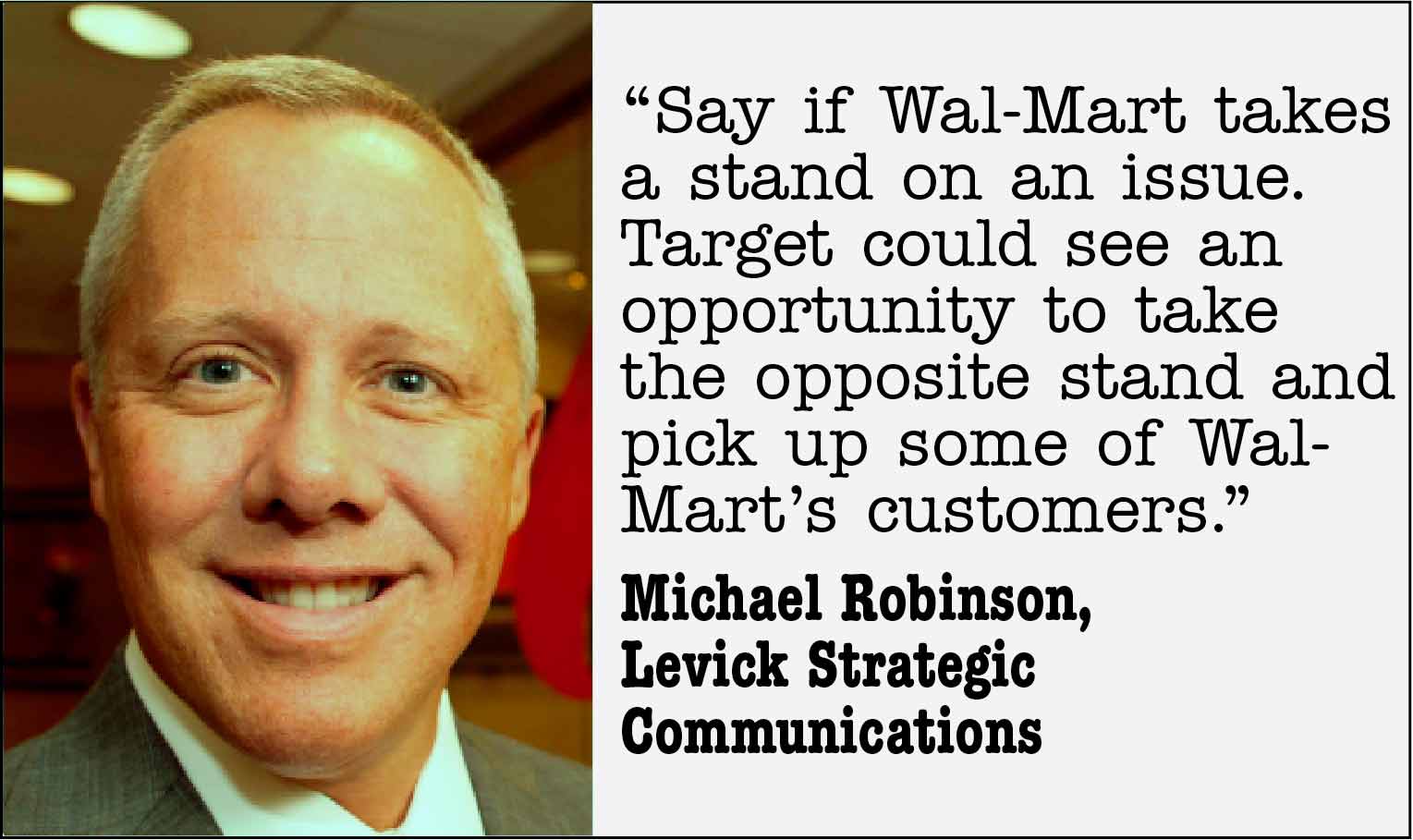Leave it to the VP. After Joe Biden voiced his approval of same-sex marriage—a position that Barack Obama had not yet taken publicly—the president had no choice but to express his own support of the issue. So on May 9, 2012, Obama told ABC News that he believed it was important to “treat others the way you would want to be treated,” coming out in support of same-sex marriage.
Thus, Obama became “The First Gay President” (as expressed by Time magazine’s related cover), garnering accolades from many for finally letting the public know where he stands, while providing fodder for political opponents.
While it’s a risky move for the president to take such a position, organizations that also take such stands could be walking on thin ice, too, says John Davies, CEO of Santa Barbara, Calif.-based Davies Public Affairs. “My rule is that a company shouldn’t take a stand on an issue outside of their industry,” says Davies. Why? There’s too many stakeholders involved, and you must respect their views as well. “You owe that to your shareholders,” he adds.
Being in California, Davies knows the damage that taking a stand on a controversial issue can cause. In 2008, Proposition 8, which provided that “only marriage between a man and a woman is valid or recognized in California,” was poised to go to a public vote. A bitter fight around the proposition found a group of Silicon Valley companies, including Yahoo, Adobe, Apple, Google, eBay and others, trying to keep Prop. 8 off the ballot by contributing hundreds of thousands of dollars to the “No to Prop. 8” campaign.
At the time, Apple issued a statement on its Web site: “We strongly believe that a person’s fundamental rights—including the right to marry—should not be affected by their sexual orientation. Apple views this as a civil rights issue, rather than just a political issue, and is therefore speaking out publicly against Proposition 8.”
Apple’s public affairs efforts were in vain, however, as the proposition made the ballot, and was passed by California voters—52.4% for, 47.8% against.
While those Silicon Valley stalwarts have Teflon coatings to various degrees, smaller organizations that supported Prop. 8 weren’t so lucky, as LGBT rights groups published lists of donors to the Yes on 8 campaign and organized boycotts of those businesses (see the sidebar for details of affected organizations).
PROS AND CONS
 |
The threat of a backlash weighs mightily on organizations thinking about taking a controversial stand, says Michael Robinson, executive VP at Levick Strategic Communications in Washington, D.C. Robinson, whose focus includes corporate communications, strategy and reputation leadership, says there are many reasons not to do it. But many of these decisions are about gains and loss, with a focus on what a companies offerings are and where it is located. Say a national retailer supports some controversial cause. “It may play well in one part of the country, but not in another,” says Robinson.
Another consideration is the competitive landscape. “Say if Wal-Mart takes a stand on an issue,” says Robinson. “ Target could see an opportunity to take an opposite stand and pick up some of Wal-Mart’s customers.”
Yet there are questions to ask in considering supporting a public issue, including:
• Will it enable you to hire the people you need? Undoubtedly this is one reason that those Silicon Valley companies came out against Prop. 8. It widens the pool of job candidates.
• Is it an industry issue that will help the business in the long run? “If you’re an energy company and hear talk that fossil fuels will be banned, you obviously must speak out against it,” says Davies.
• Does your organization have an established culture in which the public knows where you stand already? Starbucks, a company with a strong CSR message, is one example. In fact, in January 2012, Starbucks publicly supported a bill that would legalize gay marriage in the state of Washington (joining Microsoft and Nike). The bill was passed, by the way.
Another such company is ice cream maker Ben & Jerry’s. For decades the Vermont-based company has supported numerous social and environmental causes, says Sean Greenwood, the company’s grand poobah of public relations [ Editor’s note to self: Do story on unusual PR titles ]. And it hasn’t shied away from the same-sex marriage issue. In September 2009, when same-sex marriage was legalized in Vermont, the company renamed its Chubby Hubby ice cream Hubby Hubby to show support, says Greenwood. “Most recently, as the issue was being debated in the U.K., we renamed our Apple Pie ice cream ‘Apple-y Ever After’ to take a stand and share our support,” he says.
Ben & Jerry’s isn’t planning any additional communications because of Obama’s position on the subject. “But we’ll continue to take a stand as we have, while working with NGOs such as Freedom to Marry to show our support in the future, and act in accordance to our mission statement with deep respect to individuals,” says Greenwood.
SHOW RESTRAINT
The lesson here? Tread carefully before your organization publicly take a stand on a controversial issue. Davies points to his own agency as an example of prudence. “I can have my own beliefs, but I also must respect other people’s views, including my employees,” he says. Besides, as an established agency, existing and potential clients know where Davies Public Affairs stands. “I’ve represented Democrats and Republicans alike” says Davies. “They know where I stand and what I believe in.”
Perhaps playing both sides of the fence is a communications strategy worth considering. PRN
CONTACT:
John Davies, [email protected]; Michael Robinson, [email protected]; Sean Greenwood, [email protected].
Follow Scott Van Camp: @svancamp01
